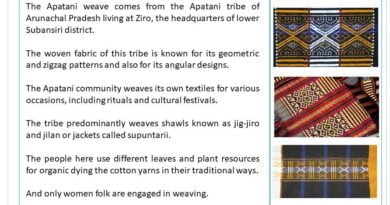Quadrilateral Security Dialogue (QUAD)
About:
- The forum was initiated as a dialogue in August 2007 by then Prime Minister Shinzo Abe of Japan on “seas of freedom and prosperity”, with the support of Prime Minister Manmohan Singh of India, Vice President Dick Cheney of the US and Prime Minister John Howard of Australia.
- The dialogue was paralleled by joint military exercises of an unprecedented scale, titled Exercise Malabar.
- The diplomatic and military arrangement was widely viewed as a response to increased Chinese economic and military power, and the Chinese government responded to the Quad by issuing formal diplomatic protests to its members.
- The first iteration of the Quad ceased to exist following the withdrawal of Australia in February 2008, Shortly after Australian Prime Minister Kevin Rudd took office, after a joint naval exercise between the Quad and Singapore drew diplomatic protests from China.
- Other reasons for the discontinuation of the Quad were that in late 2007, more Beijing-friendly Prime Minister Yasuo Fukuda replaced Abe in Japan and Indian Prime Minister Manmohan Singh’s state visit to China in January 2008, during which he stated that the India-China relationship was a priority.
- Under Rudd and his successor Julia Gillard, military cooperation between the United States and Australia was enhanced, leading to the placement of US Marines near Darwin, Australia, near the Timor Sea and Lombok Strait.
- After negotiations which started during the 2017 ASEAN Summits, with Prime Minister Malcolm Turnbull of Australia, Prime Minister Shinzo Abe of Japan, Prime Minister Narendra Modi of India, and President Donald Trump of the United States agreeing in Manila to revive the security pact,
- India, Japan, and the United States continued to hold joint naval exercises as Exercise Malabar through 2019. In 2020 Australia joined the Malabar exercise after an invitation from India making it the first time all members of the Quad will be engaged on a naval basis.
Quad Nations and China
- USA: USA had followed a policy to contain China’s increasing influence in East Asia. Therefore, USA sees the coalition as an opportunity to regain its influence in the Indo-Pacific region.
- The US has described China, along with Russia, as a strategic rival in its National Security Strategy, National Defence Strategy and the Pentagon’s report on Indo-Pacific Strategy.
- Australia: Australia is concerned about China’s growing interest in its land, infrastructure and politics, and influence on its universities.
- Taking into account its overwhelming economic dependence on China for prosperity, Australia has continued its commitment to a Comprehensive Strategic Partnership with China.
- Japan: In the last decade, Japan has expressed concerns related to China’s territorial transgression in the region.
- Trade volume with China remains the key lifeline to the Japanese economy, where net exports contributed exactly one-third of Japan’s economic growth since the beginning of 2017.
- Therefore, considering its importance, Japan is balancing its economic needs and territorial concerns with China
- Japan has also agreed to involve in the Belt and Road Initiative by participating in infrastructure programs in third country. In this way, Japan can mitigate Chinese influence in those countries while improving relations with China.
- Trade volume with China remains the key lifeline to the Japanese economy, where net exports contributed exactly one-third of Japan’s economic growth since the beginning of 2017.
- India: In recent years, China’s violation of international norms, particularly its construction of military facilities on reclaimed islands in the South China Sea, and its growing military and economic power, pose a strategic challenge to India.
- Considering China’s strategic importance, India is carefully balancing China on one hand and the US on the other, by remaining committed to strategic autonomy to China, which has generally proved reassuring to China.
- India has also not permitted Australia to participate in Malabar Trilateral Maritime exercises between India, US and Japan, concerned about what message it would send to China, which is wary of the exercise.
- The recent Mamallapuram summit between President Xi Jinping and PM Modi is a positive development, valued by both sides as key to giving strategic guidance to stakeholders on both sides.
Challenges
- China’s Territorial Claims: China claims that it has historical ownership over nearly the entire region of South China Sea, which gives it the right to manufacture islands. However, the International Court of Arbitration rejected the claim in 2016.
- China’s Closeness to ASEAN: The ASEAN countries also have a well-knit relationship with China. The Regional Cooperation Economic Partnership (RCEP) is a recent example of China’s increasing influence over ASEAN nations.
- Economic Power of China: Considering the economic might of China and the dependence of Quad nations like Japan and Australia on China, the Quad nations cannot afford to have strained relations with it.
- Convergence among Quad Nations: The nations in the Quad grouping have different aspirations, aims at balancing their own interest. Therefore, coherence in the vision of Quad nation as a grouping is absent.
Way Forward
- The Quad will need to have a clearer vision for itself. It is important for members of the Quad not to be reactive. It is also important to exhibit openness, and ensure that all talk of a ‘Free and Open Indo-Pacific’ is more than just a mere slogan.
- India, Japan, and Australia can take the lead in infrastructural projects, while the US too needs to be more pro-active in pushing ahead the vision of connectivity.
- The Quad should focus on building a robust regional consultation mechanism and coordinate with ASEAN nations on issues of regional importance.
- The Quad framework derives its geopolitical validation from India’s association and presents a unique opportunity for India to be an active participant in shaping regional security architecture with global undertones.



